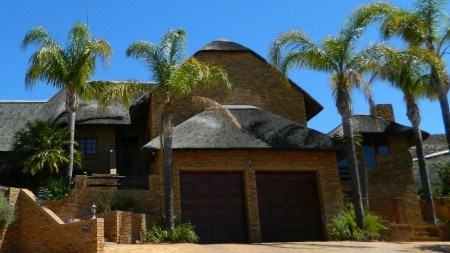A recent survey by a leading bank has revealed that homebuyers remain cautious, with a low number selling their homes in order to buy a better one.
The 4th quarter 2017 FNB Estate Agent Survey explains that this caution is unsurprising due to the weak rand and low levels of consumer and business confidence.
This caution is reflected in the fact that the agents surveyed estimated that just 11% of home sellers were selling in order to upgrade to a better property during the 4th quarter of 2017.
This is unchanged from the prior quarter’s 11%, and very significantly lower than the last multi-year high of 20% reached in the final quarter of 2013, just before interest rates started to rise in January 2014.
Slight increase in those selling due to financial stress
Recent years of economic weakness, and interest rates off their pre-2014 lows, have caused a slight increase in financial stress-related home selling since 2015, but nothing that would appear concerning.
The estimated percentage of sellers “selling to downscale due to financial pressure” was at 14% in the 4th quarter of 2017, unchanged from the prior quarter and only mildly higher than the 11% multi-year low point reached in the 3rd quarter of 2015.
To provide perspective, this percentage remains moderate compared to the 34% high reached in the 2nd quarter of 2009, shortly after the last recession and previous interest rate hiking cycle peak. Will financially pressured home sellers choose to rent instead?
A further sign of relative caution in the housing market from time to time comes when agents begin to perceive a greater portion of financial pressure-related downscalers intending to “rent down” as opposed to “buying down”, with renting often seen as the safer short term option.
The agents estimated the percentage of this seller group intending to “rent down” at 47% in the 4th quarter of 2017, slightly down from the prior quarter’s 49%, but still noticeably higher than the 40% estimated at the start of last year, and well above the 34% multi-year low reached in the 1st quarter of 2014.
Ever since interest rates started to rise early in 2014, this rental percentage estimate has never reached, nor even got near to, that 34% low again.
The rental option is often the cheaper and lower cashflow risk option, so an elevated percentage intending to “rent down” points to some weakness in confidence amongst this group of financially pressured sellers.
Cape Town is the healthiest region financially
A look at the number of owners selling due to financial pressure is a good reflection of the economic conditions in a region. For the second half of 2017, South Africa’s estimated selling in order to downscale due to financial pressure was 14%. The City of Cape Town region appears least plagued by financial stress to date, with the lowest estimate of financial pressure-related selling to the tune of 7% for the latter 2 quarters of 2017. The 2 worst performers were Nelson Mandela Bay with 18.5% and Joburg with 16%.
The drought conditions in Cape Town, however, are a key risk going forwards. Failure of the drought to end soon poses the risk of recessionary conditions in that region, and this could alter the Household financial situation negatively. For the time being, though, Cape Town appears the freest of financial stress in its housing market of the major metro regions.




